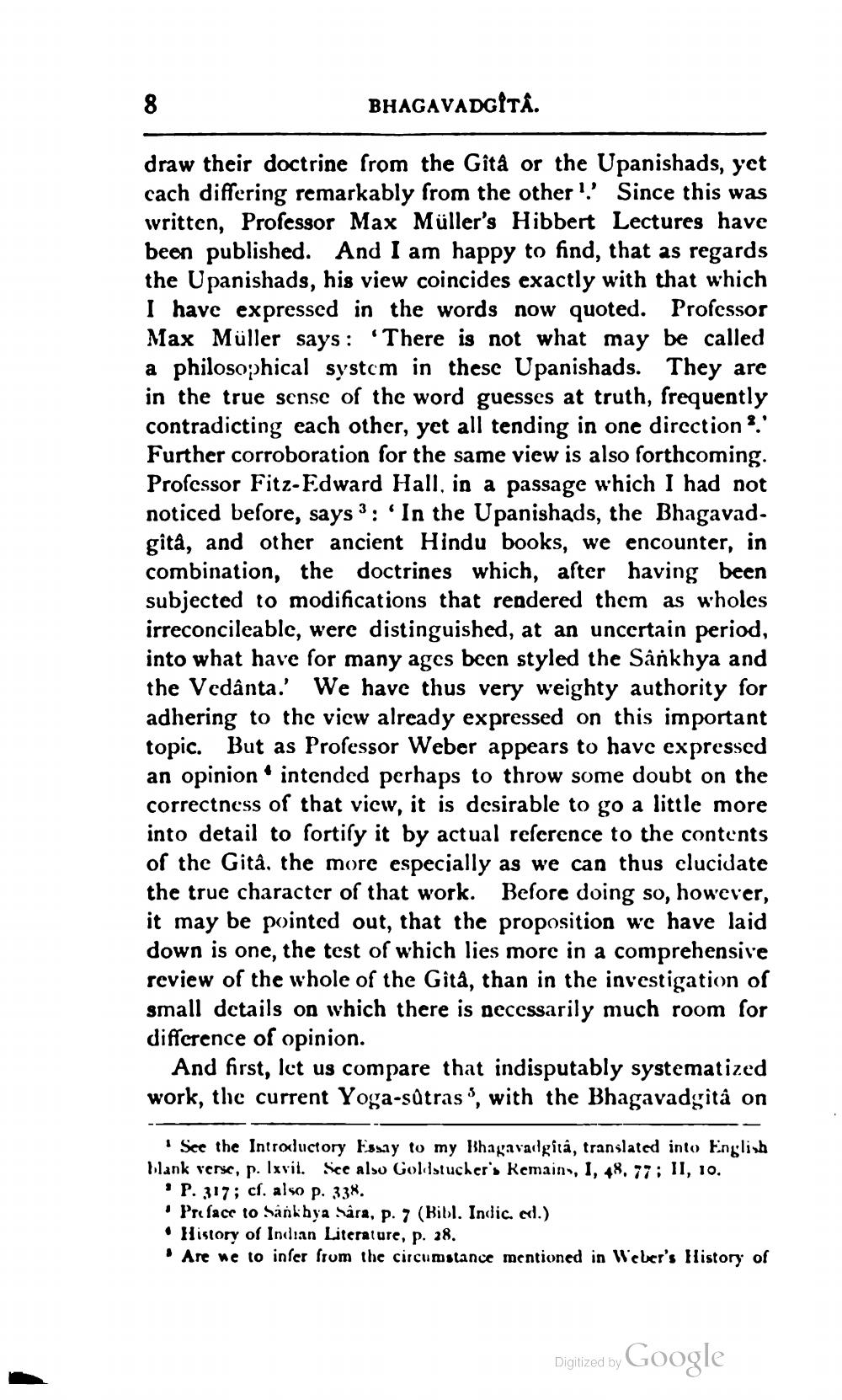________________
BHAGAVADGITA.
draw their doctrine from the Gità or the Upanishads, yet cach differing remarkably from the other!!! Since this was written, Professor Max Müller's Hibbert Lectures have been published. And I am happy to find, that as regards the Upanishads, his view coincides exactly with that which I have expressed in the words now quoted. Professor Max Müller says: 'There is not what may be called a philosophical systcm in these Upanishads. They are in the true sense of the word guesses at truth, frequently contradicting each other, yet all tending in one direction.' Further corroboration for the same view is also forthcoming. Professor Fitz-Edward Hall, in a passage which I had not noticed before, says 3: In the Upanishads, the Bhagavad. gita, and other ancient Hindu books, we encounter, in combination, the doctrines which, after having been subjected to modifications that rendered them as wholes irreconcileable, were distinguished, at an uncertain period, into what have for many agcs been styled the Sankhya and the Vedanta.' We have thus very weighty authority for adhering to the vicw already expressed on this important topic. But as Professor Weber appears to have expressed an opinion. intended perhaps to throw some doubt on the correctness of that vicw, it is desirable to go a little more into detail to fortify it by actual reference to the contents of the Gità. the more especially as we can thus elucidate the true character of that work. Before doing so, however, it may be pointed out, that the proposition we have laid down is one, the test of which lies more in a comprehensive review of the whole of the Gità, than in the investigation of small details on which there is necessarily much room for difference of opinion.
And first, let us compare that indisputably systematized work, the current Yoga-stras', with the Bhagavadgita on
See the Introductory Essay to my Bhagavadgitâ, translated into English blank verse, p. Ixvil. See also Goldstucher's Kemain, 1, 48, 77; 11, 10.
· P. 317; cf. also p. 338. • Preface to Sankhya Sára, p. 7 (Bibl. Indic. ed.) • History of Indian Literature, p. 28. . Are we to inser from the circumstance mentioned in Weber's History of
Digitized by Google




